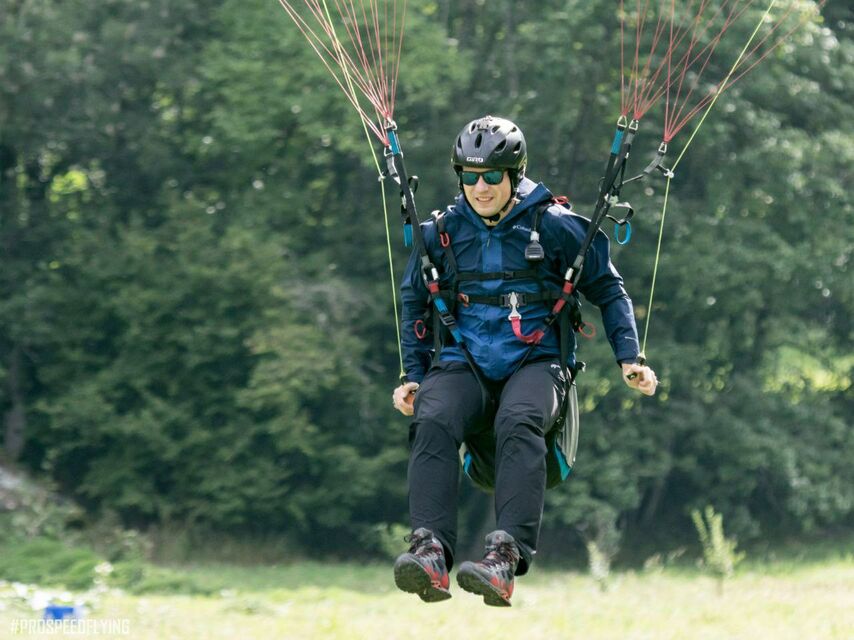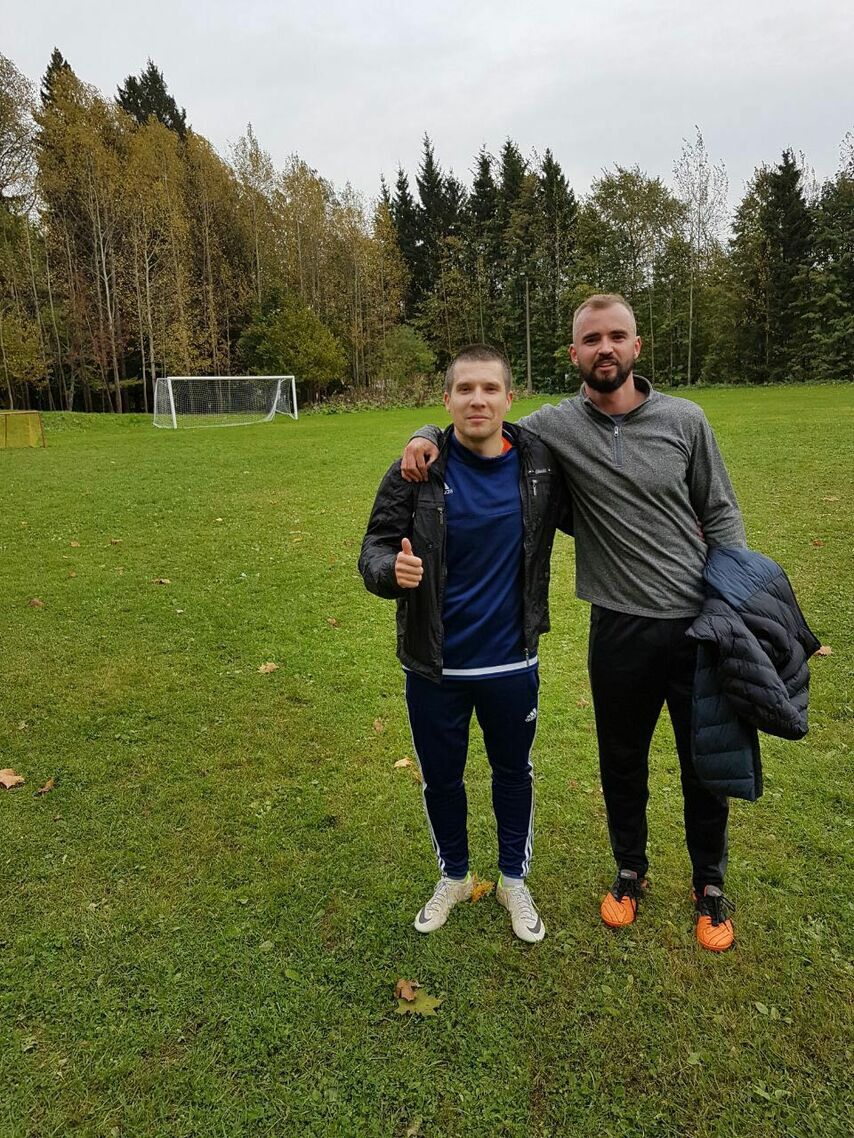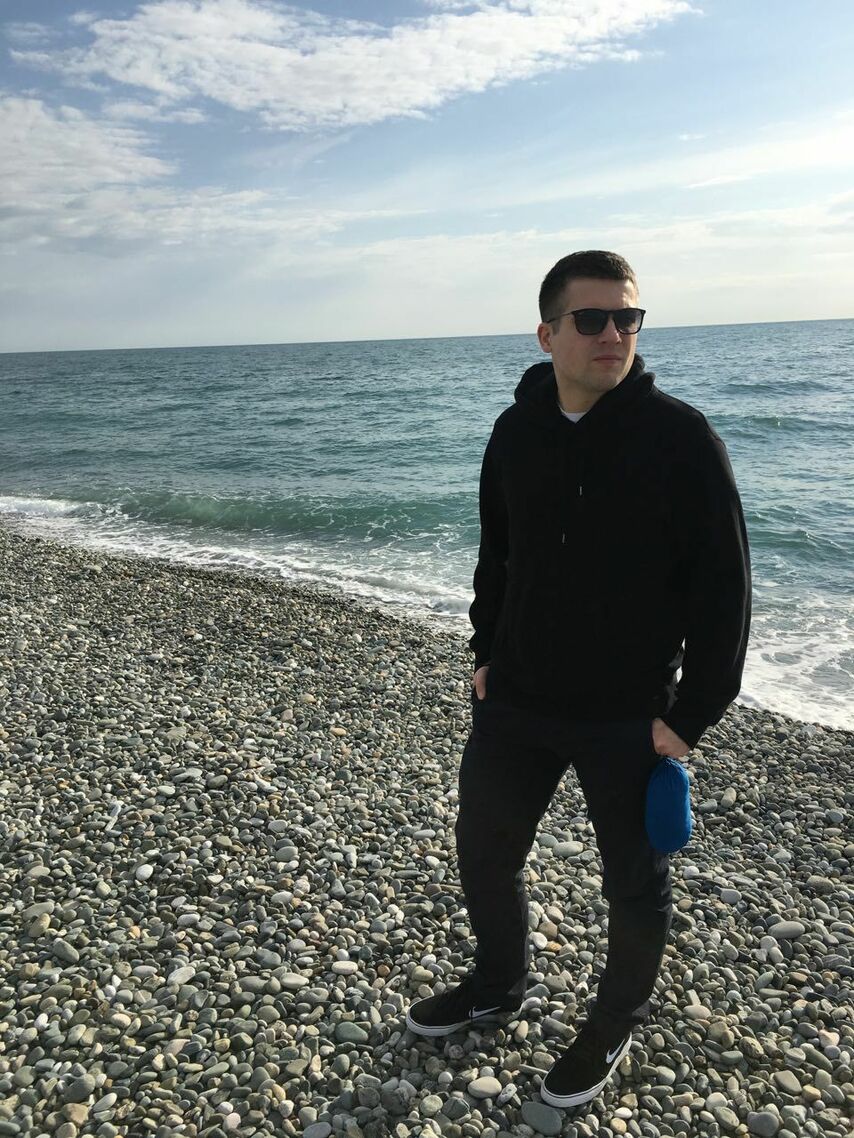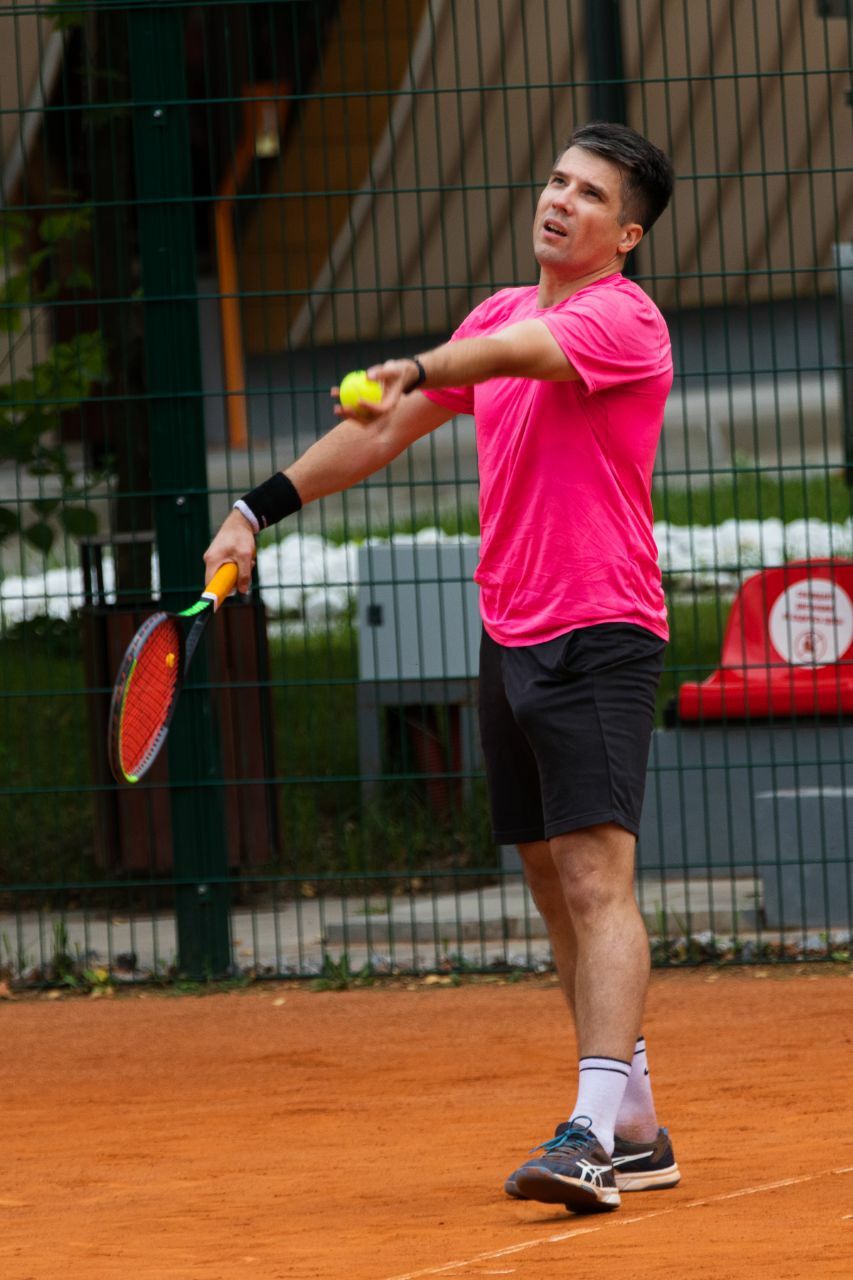– Many people know you by your online handle, but they even read it differently. How do you pronounce "Gragik" correctly, and what does this word mean?
– In general, it's probably correct to read it in English as "gre-jik", but my closest poker friends generally call me "rook", so I'm used to that too. It has no meaning, just a random set of characters, the first thing that came to mind when I was still playing freerolls many years ago. As someone who expected to play many sites in the future, I made this nickname wherever possible. Then it hurt me a little, but it's okay.
– Has it hurt? Because you provided information to your opponents?
– Yes. I never knew who I was playing with, and my opponents knew perfectly well that this combination of letters belonged to the same player as on Stars.
Did you start right away with Omaha?
– No, I made my first bankroll of several thousand dollars in MTTs around 2010. Then I played HU SNGs for quite a long time, both normal and hyper turbos, until the automatic registration programs appeared in the queue. This began to confuse me somewhat, to say the least. I started to flow smoothly into the cash – first in NL, and then almost accidentally tried Omaha, and started spinning ... I had an upstreak in the first months in HU PLO, I started with PL200 and quickly grew in limits. There were many different adventures. For a long time I played almost exclusively heads-up, then I started to try 6-max PLO. I won a lot from regs and lost a lot from regs. To be honest, I don't know exactly how I stand heads-up against regs, but since at some point the weaker ones stop giving action, you have to play only with equal or stronger ones, I lost a lot.
– Why did you start with heads-ups? It's a more complex and more demanding form of poker – you have to play every hand, the changes in form are more expensive... Full ring or 6-max seems like a more logical way to learn a new game.
– I agree, heads-up is more difficult, but it was natural for me because at that moment I was playing HU SNGs for $500. Therefore, I started Omaha right away with the PL200, hoping that somehow I would figure it out. I played at first, probably quite badly, but from the start, I was very lucky, went up and did not look back.
– That is, by the time the upstreak was over, you had already learned to play?
– No, well, without falling, of course, it could not have been done. One of the biggest problems for me throughout my career has been the lack of good game selection. It's hard for me to play if it's boring to play, if the opponents don't challenge me. So there were a lot of ups and downs.

In general, I was not always friendly with theory and often played looser than necessary, but I was usually good at playing by feel – or, if diplomatically, intuitive adjustments to opponents.
What are your current work limits?
– I think the main working limit is $25/$50, but action is just very rare. This is in traditional rooms, in applications it can be more difficult to estimate the limit due to antes, straddle-restraddles, and other features, but they are generally comparable.
– Did you end up falling in love with working with solvers, or at least coming to terms with it? Or was it possible to do without serious studies?
– Love is a strong word, but I began to do it, and it is now much more interesting to me than before. By the way, I'd like to say that a few years ago I was very impressed with your article, in which you analyzed in detail a difficult hand and called on the river ... I really remember thinking about how much more expensive it is to make a mistake on the river compared to a mistake on the preflop or the flop. The main EV is mined in the big pots on the late streets, and it is this component that needs to be worked especially carefully with the help of a solver.
– Who can you rank as the strongest opponents on PL5k?
– Grazvydas Kontautas stands out from the rest. Among the regulars who play 5k and above, there are many players who act in a nit style, but Grazvydas is not like that at all, he is very quick-witted, smart, cunning player, and he can do everything. From the Russian speakers, I note Max Reshetov from the forum. He played high stakes and at a good level. I would also like to mention Stas Milguy, borntotilt. Strong in NL, Omaha, and five cards. I see him every day in the lobby on public sites. My rating, of course, is very subjective, I do not pretend to be an absolute truth.
I will add that in Omaha, as in sports, there are national schools. There are Finns, among them, I can single out EEE27, his name is Eelis Pärssinen, a famous player. He doesn’t play regularly, sits only at the highest limits – there is already a lot of money, it’s not interesting to grind. The Finns have their own academy, video materials, they are actively working. There are Hungarians, they also have a couple of strong players. Clearly, everyone knows omaha4rollz, who plays super high stakes. There are Swedes – a standard, in general, set of countries.
– From your story, I get the impression that you are a talented player. Such players win mostly through improvisation and leveling, and they turn to working on theory when they literally are forced to. In chess, people with similar qualities rarely become coaches – after all, you cannot pass on your talent to a student, you need to pass on the system...
– I agree with your assessment, I myself did not expect how successful this experience would be for me. When I was approached by the GreenLine fund with an offer to train the fund's players, I, let's say, blindly called all-in. Now I can confidently say that it was the best decision I made in my poker career. Working with students opened my eyes to many things and gave me new motivation, including as a player.

How are you accepted into your group?
– First, the players apply. Applications are considered, and those who do not meet the requirements at all are screened out. Then an interview takes place, in which the representative of the fund tells what the fund can offer the player, and the player tells what he can offer the fund. After the interview, a decision is made to include the player in the group. We have an "higher" group where the stakes are PL400 and up, and a "lower" group whose members play PL50 and PL100. Obviously, with good results and diligence, players from the “younger” group can move to the “older”.
How are the group sessions going?
– First, all fund players get access to training videos and simulators. There is also a Telegram group where we communicate and discuss various issues. Group training where we discuss topics from general theory to hand analysis. For each of the players – an individual training, where I go over 20,000 hands. The approach to them depends on the desire of the student – we can work on a topic that interests him, look at his base, a live session (which is less effective, in my opinion), specific spots in which he has difficulties, and so on. Everything is very flexible.
– As I understand it, two types of players are most interested in the program: 1) those who have the skill to play higher or higher limits than the current ones, but do not have a bankroll – they, in fact, need only backing, and training – a nice bonus; 2) grinders who are stuck at some limit want to grow but don't know how. Do you work with both types?
– Yes, I think that we can offer favorable conditions to both the first and second types of players. In the fund, everything is very individual, you can always find a suitable option. We do not have draconian conditions, they say, you leave, but you are good. In any situation, you can come up with something.
– How many people do you have?
There are about 15 people in my group now. With such a sample, there are always those who are more active at the moment, others are a little less, but there are always ten active people. Almost all of my players play above PL400, some also play the most expensive games – up to PL5k in applications.
– Obviously, for such players, but probably for those who play lower, do you have access to solvers, simulators, and so on?
– Yes, yes, this is also one of the advantages of working with us. There is access to the solver, to the most modern materials on Omaha. We also have our own five-card Omaha solver, which we are proud of, because there are a lot of five-card games in the applications, and there are no other solvers in the public domain, and this gives a very big advantage. There are a lot of non-intuitive solutions out there.
– What is the approximate percentage of hands of the game between PLO and PLO5 in applications?
I don't have exact numbers. There are players in my group who play classic Omaha and they have enough action, but everyone says that in five cards it is easier to get it at higher stakes. Probably, up to the conditional PL400 and PL600, you can easily set up tables with four cards, on PL1k it’s already worth adding a five-card one. Yes, you yourself will want to – there are fat fish, bigger winrate, and more action!
– And the bigger winrate due to what? Intuitively, it seems that five-card equity flattens out and objectively win rates should be lower. Is it about the average level of the game?
– Yes, first of all. In games with strong opponents in five cards, the variance will be higher and the win rate will drop, but against weak opponents, the opposite trend happens. The last time I played in NL was a long time ago (and I can’t remember when I was sober), but I can say that it’s easier to beat a VIP with four cards than with two. With five cards, this trend continues. And we still mostly have a win rate with fish.
– In your opinion, describe the ideal candidate for GreenLine's coaching program.
– Good question. I would not say that there are strict categories. Suitable for many, especially because GreenLine can offer games that you can’t find on your own. This is the main point. If you play certain limits, get stuck on them, and need the help of a coach, the fund can help with this. Then the notorious networking, which I missed so much in my time – a well-built and organized community that has developed in the foundation, will help you find like-minded people and partners along the way. The obvious point is about backing. There is skill, but no money – the situation in poker is not uncommon.
There is another common situation that surprises me personally. Quite a lot of players spend all their winnings until they have zero for a living. They make more purchases... It was a discovery for me that a player can have both skill and money – but no bankroll!
In general, we want someone with a desire to grow and develop, and we provide access to good games that are not easy to find. And, of course, backing.

– Can you share any ideas related to the strategy that surprised you at the time?
– I can tell you my eternal PLO insight that accompanies me all my life. Maybe it's because I'm too loose and have always liked to catch bluffs and bluff myself? So: it is much easier, first of all, psychologically, and much more stable to make threads!
I have several filters through which I run all hands when I analyze the actions, I look first of all at the river – bluffs and bluff catchers. There is a player in the game who played a certain segment, not super big, but decent, with a win rate of 25 bb/100! I opened the database of his hands, put in this filter, and started watching hands, starting with the biggest ones. I look and do not believe my eyes: he simply does not have a single bluff, he has never bluffed! I change the filter a little, I look – there are some lost pots. I take a closer look – and these are just value bets that have come up against stronger hands. The moral of the story is clear – nits rule poker.
And they hire journalists to praise beautiful solver bluffs.
– Yes, maybe so.
– I had a prepared question, what should I work on most actively, but now the answer is probably clear – learn how to make the nuts?
– Yes! But seriously, what many players lack, including in the game and in general, is fundamental knowledge. A lot of top regs, who were asked what influenced their game the most, unanimously named Bill Chen's book "Poker Math". These are the people I respect immensely – Sauce123, Ben86, and others. I can’t say that I read it from cover to cover, but I learned some main points from it and other similar books and I can say that even in 2022, with all the information, they have not lost their significance. You can work with the solver and use the randomizer as much as you like, but if you do not understand the basics very well, you will always be outplayed by a player who has read and understood Poker Math well. This gives a basic understanding of the game. Linear range, polar range.
Many players intuitively pick up elements of such a game from other people's videos, but they do not have a fundamental understanding, and if they are asked to explain their actions, they will not be able to do this. Occasionally they will act correctly, but systematically they will not. This is really the most important moment in poker, in my opinion.
And the second point. I want to talk about the notorious dilemma with the use of the solver: to check or not to check?
One of our poker idols, Phil Galfond, recently released a course in which he often goes into detail on the fact that the sovereign is not the ultimate remedy. I have an old friend, a Russian-speaking German from PokerStars Insider19, a very old school guy, who doesn't play poker anymore. About three years ago he tried to come back and turned to me. When we were discussing hands, he kept checking his game against the solver. Then Vision appeared, very convenient, visual, great. He always told me: “Dennis, look, the solver plays like that! And here it calls! And here is the raise. I'm not exaggerating – probably 50 times, I told him: “Vova, don't look at the solver! People have very different ranges. The solver is only needed to learn how to play. But he trusted the solver more than me, and it couldn't beat the PL200. Although it has a good basic understanding, he played high stakes in the NL during his bearded days.
This is a problem for many players – they are very fixated on the solver and do not understand how to use it in a real game.
– That is, there are not enough adjustments for the field as a whole or for a specific and well-studied opponent?
– Yes, probably so. It seems to me that there is a lack of a correct methodology of work, an understanding that the solver plays against itself, and we play against people.
– Is it possible to somehow imitate the ranges of people in the solver in order to calculate the counter-strategy? In Hold'em, it's easy, because there are few combinations, but in Omaha there are two orders of magnitude more, and you can't write the range manually...
– Quite right. However, a solid range can also be made in 4-card Omaha, although not as easy. In the old version of Monker Solver, this was implemented much more conveniently, in the current version this feature was practically removed, but you can return to the old solver and “find” the ranges there. This is the most useful function that the solver has, for sure! You also need to know GTO solutions, of course, but working with fixed ranges is the most useful thing in the solver. The place where the money actually lies.
– I have never played with apps, so I'm interested in some technical details. They write that it is hard to use and inconvenient software. How many hands per hour? If very little compared to regular rooms, will there be a sufficient advantage in $/hour?
Of course, apps will never be as user-friendly as Full Tilt's reference software. It's a fucking phone app in an emulator, originally designed to play one table! However, in terms of hands per hour, I don't think that's a problem. I have people in my group who play more hands per hour than I ever dreamed possible. You won't be bored if you want. Yes, at higher stakes, as elsewhere in the last couple of years, starting somewhere with PL2k, there can be problems from time to time. In the summer the game disappears. Although now everything is in order, no one complains.
I personally have always been a supporter of playing for a win rate. Playing bonuses, playing long sessions is not my thing. The performance you can show by playing non-stop 8-10 hours a day will always be lower than in a comfortable multi-table session. Huge volumes – lower winrate – higher variance – more streaks – you play more in a suboptimal state – lower winrate – and positive feedback is turned on, which has a bad effect on the game.
And in apps, win rates can be very decent, despite the rake. It is clear that in the long run 25 bb/100 will not work, but just a two-digit win rate is quite real.
– Is there a HUD and statistics during the game? Can I upload hands to Poker Tracker or Holdem Manager? Or just Hand2Note with its subscription mode?
– The situation is different in different apps, but the main tracker is Hand2Note, although not all apps have it. It seems like the guys use other trackers, there are hand converters for them. Some hands are lost, but this happens on regular sites as well.
– And we need to touch on, probably, a topic that always worries the players – bots and team play.
– First of all – team play. The most popular homemade botnet was destroyed by many regs, there should not be a big problem with them. But Greenline tries to follow the possible team play very carefully. We must pay tribute to the leaders: the clubs that are available to the players are thoroughly checked. I am not very dedicated to the subtleties of choice, but this issue is given great attention. And we are always ready to discuss with the players their suspicions of team play, even paranoid ones.
I think I've been team-played a lot on public sites as well. I have no illusions about this. But they are trying to keep up with it. And if it’s completely unbearable, we always go forward and let the player change the room.
In general, now all the guys have normal win rates, and this is the main indicator.
– In conclusion, I’ll ask you, do you have any goals in your coaching career? And in the game.
“Good question, existential. In coaching, it is much easier for me to set goals and objectives. I try to see how my work affects the players and get feedback from them. I look at objective indicators – win rate, improvement of the game in certain situations. This is a benchmark for me, and I always try to track progress. This is an endless process, but everything is simple here.
But in the game, I have no exact goals. All my material needs are covered since I don’t really need regular shopping in Milan. I listen to my heart! I want to enjoy the game for as long as possible and show my best poker while I'm interested."

– Didn’t you sit down to play heads-up with Galfond?
– I once sat down. I didn't play for a very long time with anyone, but I sat at the tables with a lot of people in HU. Most often $25/$50, sometimes $50/$100. I played with Galfond, with Ben Sulsky, and even with Ben Tollerene for a couple of sessions, and I crossed paths with Ike, and with Isildur. Played with all the pop stars! Isildur got 10-15 buy-ins in a couple of sessions. One of the most talented dudes. I remember that session very well. I think you can even order it on PokerStars. Although... scary. There is a fear of getting hurt from what you see.
I well remember the feeling of constant discomfort from that session. As soon as I remember her, it immediately pops up on an emotional level. I know a lot of people felt the same way about him.
And with Galfond, everything is calm, smooth, and you just don’t understand why you constantly have to buy more ... You can talk about heads-ups in general. This is a long conversation!
– I’ll be happy to talk, but for now we’ll leave this topic for the future.
– Agreed.











